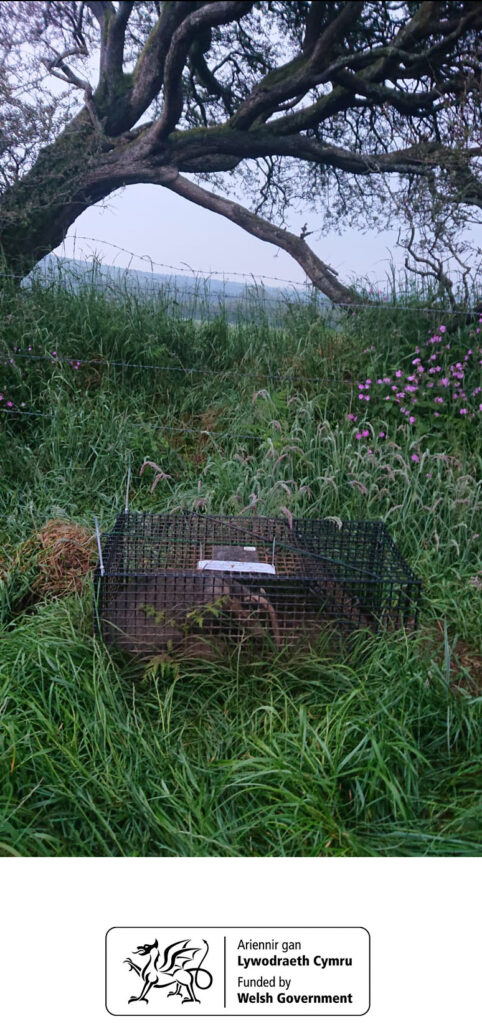Badger Vaccination
Badger Ecology LTD provide badger vaccination services to landowners such as farmers, conservation groups, the construction industry,
and private individuals across Wales and throughout the UK.
Our farm vaccination programmes are one of a range of measures which can help to reduce the risk of Bovine TB spreading between badgers and cattle.
This involves surveying for badger activity and vaccinating badgers with BCG once a year.
We work with farms to provide a vaccination program as part of a package of bio-security measures,
which can help to reduce the risk of Bovine TB spreading between badgers and cattle.
Why Vaccinate Badgers?
It is common knowledge that the Eurasian Badger is a significant wildlife reservoir for Bovine TB (Mycobacterium bovis) in the UK. Vaccination of badgers against M.bovis has been proven to reduce the likelihood of badgers testing positive to bovine TB by up to 85%. When a third of the sett has been vaccinated, unvaccinated badger cubs show a ‘herd immunity’ and are up to 79% less likely to test positive for Bovine TB, so even vaccinating a small number of a sett can have huge benefits. Reducing the likelihood of badgers testing positive for TB reduces the amount of TB excreted in badger urine and faeces and should, therefore, decrease the risk of cattle coming into contact with the bacteria, aiming to decrease the likelihood of reactors in the herd.

Badger Vaccination FAQ’s
Why vaccinate badgers against Bovine TB?
Badgers are a significant source of bovine TB infection in cattle and are involved in the maintenance of the disease, so in order to be able to control or eradicate the disease in cattle and camelids, we have to deal with the infection in badgers too. Reducing the level of Bovine TB infection in badgers could also reduce the level of infection in cattle.
How could vaccinating badgers reduce Bovine TB (M.bovis) in cattle?
Vaccination of badgers against M.bovis has been proven to reduce the likelihood of badger testing positive to bovine TB by up to 85%. A reduction in the prevalence and severity of disease in the badger population should reduce the potential for transmission of TB from badger to cattle. When more than a third of badger’s social group has been vaccinated, the risk of an unvaccinated badger cub testing positive to bovine TB is reduced by 79%. Reducing the likelihood of badgers testing positive for TB reduces the number of bacteria excreted in urine, faeces and other clinical samples. Such effects in the field are likely to translate into a reduced risk of transmission to cattle.
How much does it cost?
The cost of a vaccination program to farmer/landowner depends on a number of factors including how many acres need to be surveyed, how many badger setts are present and how easy it is to access those setts. Written quotations are available on request of the initial survey.
Could vaccinating make bovine TB worse?
No. Studies have shown that vaccination doesn’t exacerbate the disease in already infected badgers. Nor does it increase excretion of bacteria or lead to an increased risk of transmission of bovine TB.
Do you have to vaccinate every badger?
No. Only a proportion of the susceptible population (that is those that are not already infected with bovine TB) need to benefit from the protective effects of the vaccine in order to reduce the prevalence of infection in the population. This is known as herd immunity and works on the principle that if some of the population are protected from the disease it is less likely that an infected individual will come into contact with a susceptible individual, therefore, the disease is less likely to be passed on. Obviously, the higher the proportion of protected individuals there are in a population, the lower the number of animals that could become infected.
TESTIMONIAL
“Having worked with George at Badger Ecology for 5 years, his professional knowledge and practicality make the job easy to fit around my dairy business.
I consider the service George provides a vital component in protecting our herd and wildlife from the spread of bovine TB”
Stuart Evans – Lan Farm, Meidrim


